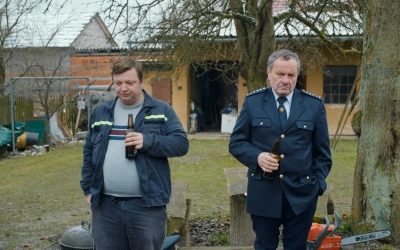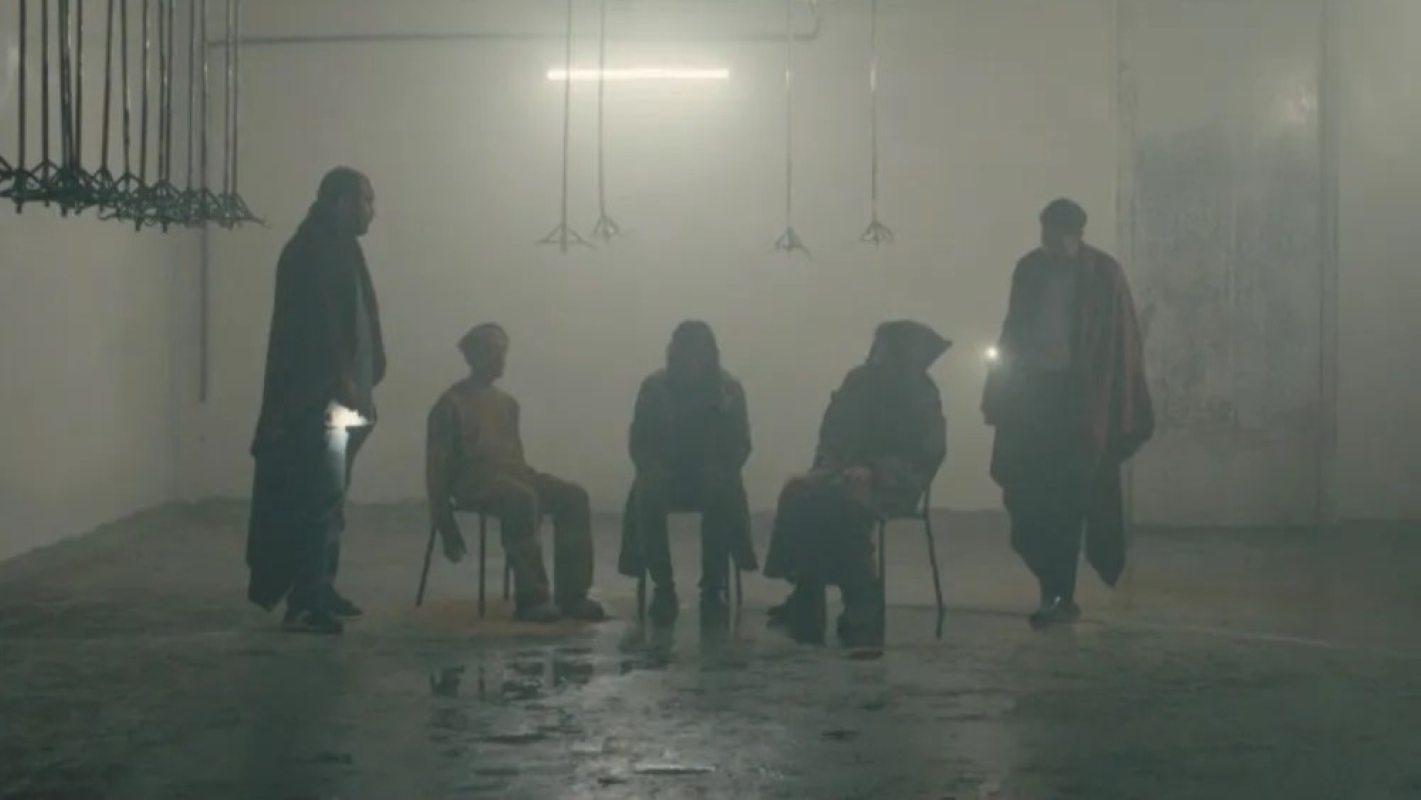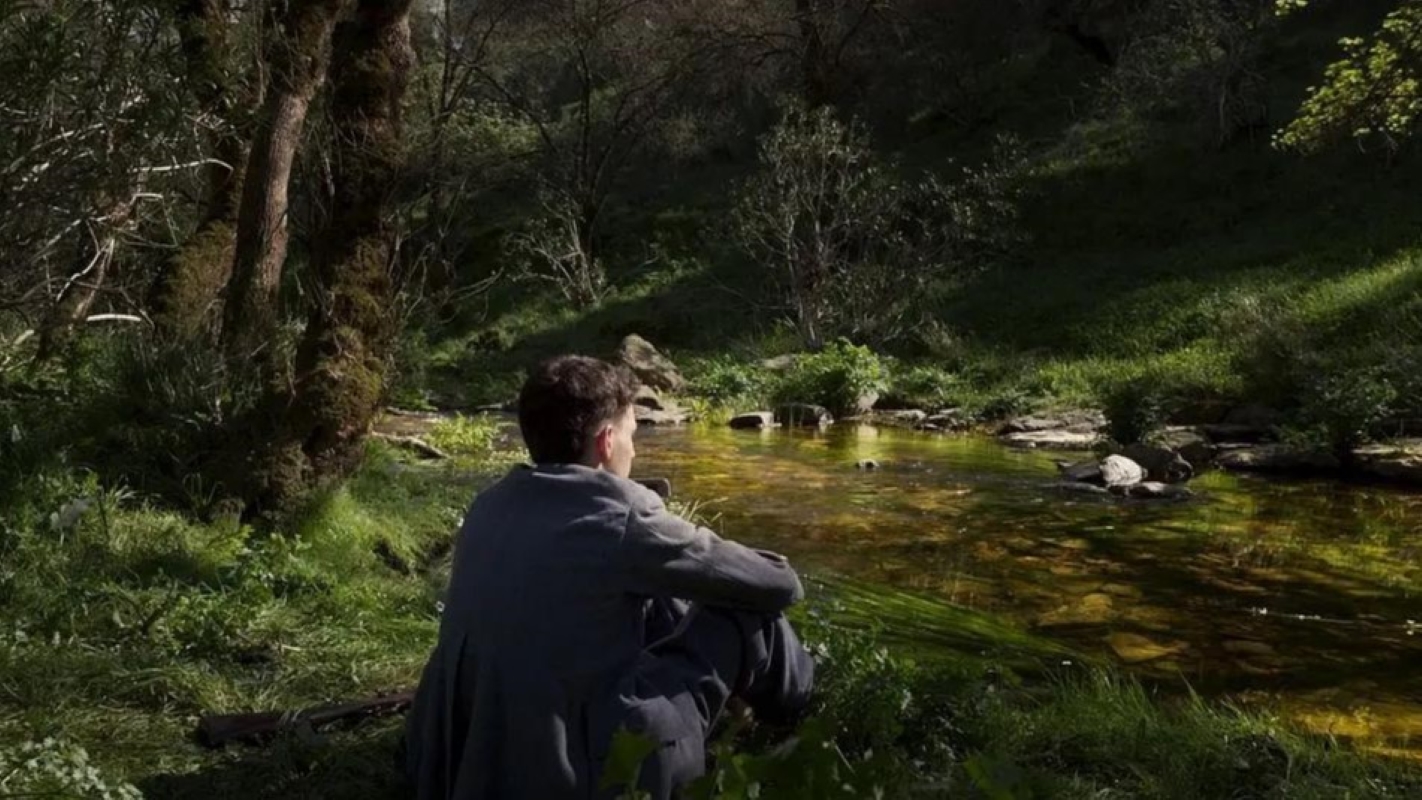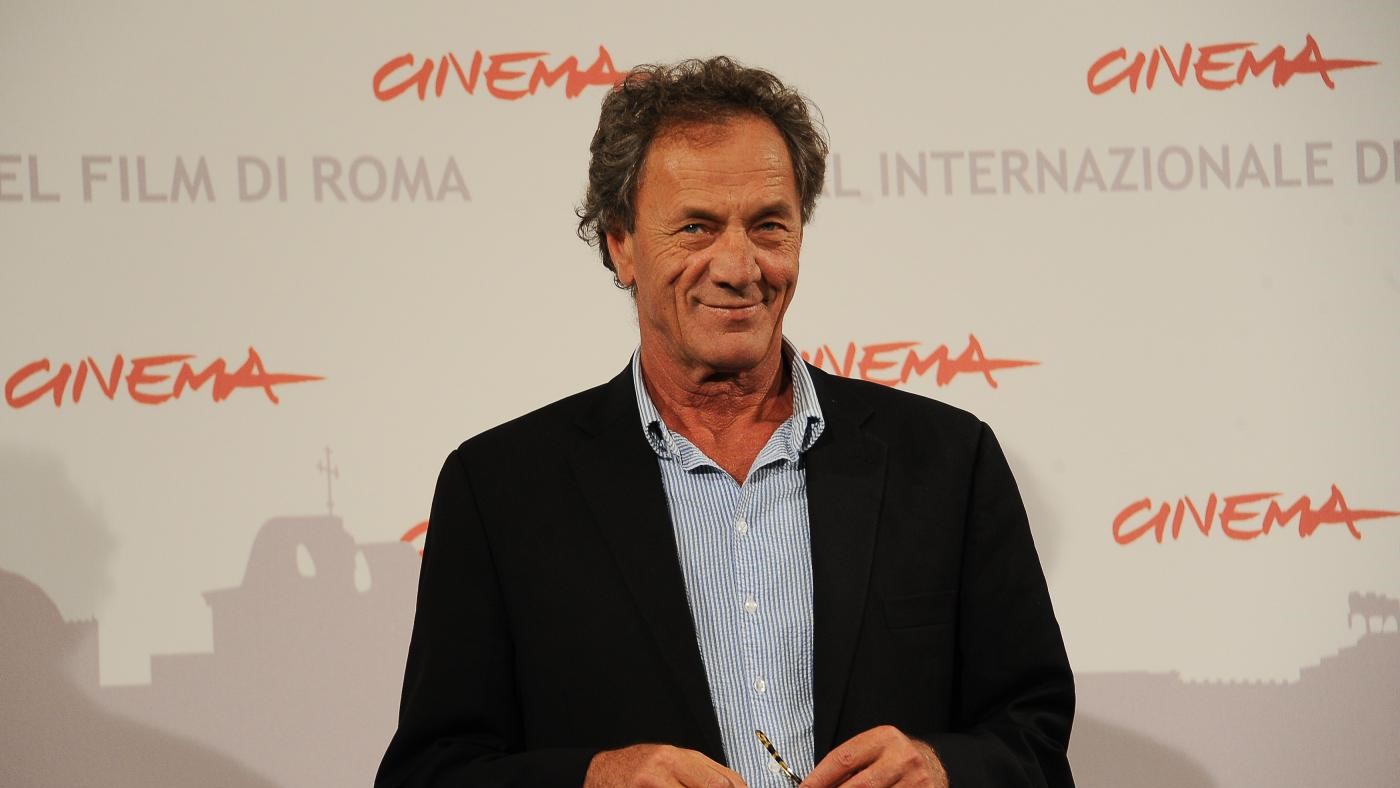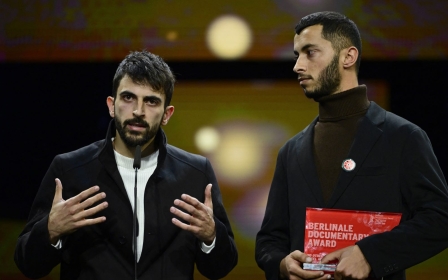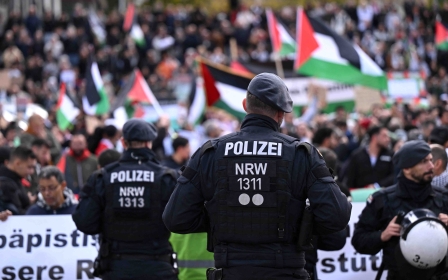Locarno 2024: Palestinian grief and Lebanon's ghosts of war cast a shadow
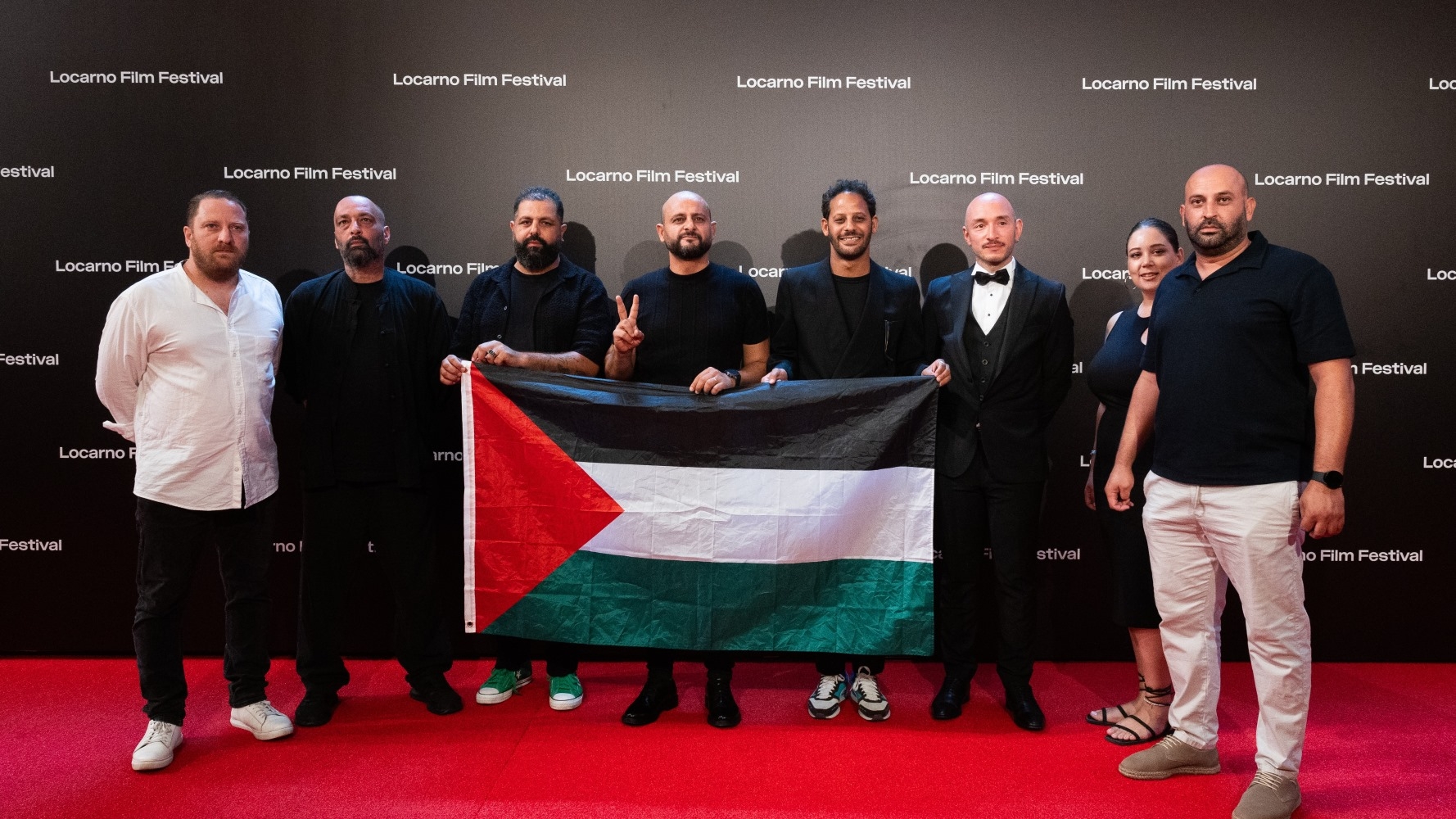
In her 2018 book, The Monarchy of Fear, American philosopher Martha Nussbaum rings an alarm bell over the devastating impact of trepidation on democracy.
She stressed that the terrorising mechanisms used by people in power to realise their political visions stand in contrast to the free and healthy essence so-called democratic societies believe they possess.
Fear is not only endemic to policy-making, but to all facets of contemporary life, including art.
Since 7 October, art organisations the world over have been scrambling to deal with the Gaza question, a question that has proven more polarising in the West than any major issue in recent memory.
Film in particular has adopted more precautionary measures than other disciplines. Unlike Russia and Ukraine, Trump, the Iraq War, or the Iranian Mahsa Amini protests, film festivals have deliberately chosen not to take any formal stance against Israel or with Palestine.
New MEE newsletter: Jerusalem Dispatch
Sign up to get the latest insights and analysis on Israel-Palestine, alongside Turkey Unpacked and other MEE newsletters
They insist festivals should stand as democratic platforms for all points of views even as Russian films and Syrian Assad government-backed productions continue to be blocked from the international film scene.
Fear has been the underlying current of the fair’s public dealing with Gaza, because the fact is, all major festivals have unofficially turned their backs on any potential Zionist-sympathetic pictures, including Venice which has been inaccurately accused of showing “complicit” Israeli films.
None of the world’s most prominent film festivals called for a ceasefire, although privately, you’d be hard-pressed to find any festival heads or programmers in alignment with Israel’s actions.
Fear has thwarted curators from openly speaking out about the conflict or condemning Israel for its “crimes against humanity” as Spanish Oscar-winner Javier Bardem put it this week in San Sebastian.
None of the world’s most prominent film festivals called for a ceasefire
Instead, festivals have chosen to offer Middle Eastern film selections that dance around the topic, indirectly carrying their pro-Palestinian sentiment without making an overt statements while also allowing space for artists to express their solidarity with the Palestinian cause.
Although Cannes did unsuccessfully mull banning political protests in its vicinity – numerous artists shrugged the festival’s policies off and expressed their solidarity with Palestine – it was obvious that no festival would deal with Palestine as gracelessly, as pusillanimously as last spring’s Berlinale which featured pro-Palestine speeches that were branded “antisemitic” by German policymakers.
Switzerland’s Locarno was a case in point. One of the world’s premier showcases for conceptually daring cinema and, recently, politically minded genre fare, the 2024 edition contained a large Middle Eastern selection that touched upon contentious subjects.
From the aftermath of Gaza and the brutal patriarchy in conservative Arab societies, to the lingering shadow of Tunisia’s bloody past and the ever-present legacy of Lebanon’s Civil War, Locarno offered a portal into the mindset of Arab filmmakers struggling to find their place in a marketplace that has grown curious yet cautious about their stories.
Mond
Headlining the selection was Mond (Moon) the highly anticipated sophomore feature of Iraqi-Austrian filmmaker Kurdwin Ayub, who made a splash on the festival scene with her 2022 debut, Sonne, about a veiled Kurdish teenager in Vienna who is transformed overnight into a mini-celebrity after her rendition of Losing My Religion goes viral.
While her debut provided a rare portal into the complex lives of young Arab-Austrian teenagers, her second feature explores the uneasy relationship between middle-class Europeans and an Arab culture they cannot fathom.
Florentina Holzinger is Sarah, a martial artist who lands a lucrative job offer to train the daughters of a wealthy family in Jordan. Utterly clueless about the region and ignorant of the history of the shady family, Sarah finds herself in a strange land training a group of spoilt and heavily surveilled girls who have little interest in both the sport and Sarah herself.
What begins as a drama of awkward culture clash swiftly morphs into a dark thriller when the girls are revealed to be quasi-prisoners in a luxury house operated by a shifty, smooth-talking older brother and controlled by permanently absent parents.
Ayub shrewdly highlights the economic malaise that has stricken the young disaffected members of the middle-class and driven them to seek better-paid work opportunities in socially and politically conservative places - not just in the Gulf but practically everywhere.
The choice of Jordan is not intentional: the wealthy family could be in Cairo, Beirut, or Algeria.
The subtext of the broken global economy is far more illuminating, far more pressing, than whatever Ayub is seeking to explore about the Arab world, which essentially comes off as a rudimentary, characterless backdrop to the main drama.
The occasional thrills offered by the genre tropes cannot conceal the predictability of the material at hand. Mond is yet another account of young bright girls oppressed by their controlling family for reasons that never manage to convince.
The revelation that the family is part of the Jordanian mafia, for example, adds more loose ends to the anaemic narrative of the film.
There’s undeniably excellent craftsmanship on display, such as the contrast between moody nocturnal scenes at the local bar and the invasive brightness of the girls’ contained environment, but Mond ultimately comes off as a confused project.
It initially tries to reverse the colonial relationship between Europe and the Arab world but ends up saying little or nothing about the various pointers it shallowly treats.
Agora
More ambitious and far more elusive was Agora, the latest unclassifiable creation by Tunisia’s enfant terrible, Ala Eddine Slim.
His third feature is an investigative mystery of sorts centred on a small town suddenly rocked by the return of three disappeared persons who have been reincarnated in semi-human form: half alive, half dead.
A high-ranking intelligence agent from the capital is deployed to assist the hapless local authorities in unravelling the riddle of the revenants.
Agora is ingeniously anchored from the point of view of a motionless black crow and a blue dog; their dialogue is transposed in ominous subtitles that act as a harbinger of doom.
The village gets hit with more freakish happenings that may or may not be linked with the revenants.
While the cause of these occurrences is never fully revealed, the connection of the returned ones with the equally cryptic intelligence officer suggest that the former may have been victims of a violence that was never punished; violence the apathetic village may have been complicit in.
Slim is one of the most original, daring voices in contemporary Arab cinema. His films are notable for their defiance of narrative conventions and logic, oscillating between David Lynch and Spanish surrealist master Luis Bunuel, and creating ample space for different interpretations.
Agora does not scale the heights of his debut, The Last of Us, or his sophomore effort, Tlamess, as the promised descent to sheer madness never arrives.
The political subtext of the picture – Tunisia’s incapacity in dealing with its violent past and the enduring memory of the persecuted victims – is more pronounced than Slim’s previous outings, but a weak, anticlimactic third act does ultimately harm the picture.
Green Line
More direct in its political intentions and more straightforward in its formal approach was Green Line, Sylvie Ballyot’s exhaustive reconstruction of the Lebanese Civil War as witnessed by the film’s protagonist and co-writer, Fida Bizri.
Bizri was a little child when she was held at gunpoint by a militant at the peak of the war in the 1980s, a memory that has haunted her for most of her life.
Having left for France at a young age, she returns to Beirut to embark on a quixotic endeavour to understand what had happened during the bloodiest decade of Lebanon’s history.
Over the course of two and a half hours, Bizri interviews the different parties of the war: the Christian Kataeb Party, the Progressive Socialist Party, the Lebanese Communist Party, the Arab Socialist Ba'ath Party in Lebanon, amongst others.
Bizri uses a miniature of Beirut circa the 1980s to play out the battles that waged at the time, as each of her interviewees reflect on their actions during the war. Some strive to absolve their actions and deny any wrongdoings, others come clean and confess the murders they had instinctively carried out.
The miniature, the re-enactments of the murders by Bizri’s subjects, the archival footage, and the extensive analysis of the politics behind the war does not bring the viewer to a closer understanding of a conflict that remains largely unfathomable.
The fight for true Lebanese identity – whatever that may be – is the underlying charge behind the ideologies of these quarrelling factions. Bizri, in one scene, hints that these cliques remain intact, albeit in altered forms; that their creeds are now being adopted by younger generations grappling with similar identity conflicts.
Forgetfulness, most of the interviewees attest, is the sole lifeline they can hang on to cope with the trauma of the past. Bizri counters the argument by emphasising that the corporeal violence that has been passed from one generation to another cannot be exorcised through collective amnesia.

The question of Palestine looms large over the proceeding. In one scene, the ex-member of the Communist Party attests that they believed back then that their actions will solve the Palestinian issue once and for all. Later, he realised that the Palestinian dilemma might not be resolved in his lifetime.
Political division in Lebanon, Ballyot implies, is partially informed by the opposing perspectives on how to deal with Palestine. The lurking lust for bloodshed the Civil War unearthed is what Ballyot, Bizri, or the half-dozen interviewees do not manage to thoroughly elucidate.
In one of his recent addresses, the Israeli minister of defence, Yoav Gallant, said that “Hezbollah has hijacked Lebanon and that’s why it’s a failed state.”
Green Line – which earned the Mubi prize for best debut feature – proves, once again, that the Lebanese malaise runs deeper than its connection with Hezbollah.
Watching the film now in light of the current Israeli attack can be a sobering experience: a reminder of the familiar self-inflicted damage Lebanon has continuously struggled with, and the unhealed trauma amplified by Israel's aggression.
Upshot
The spectre of Israeli malevolence hovers over Maha Haj’s short Upshot, the first Palestinian film conceived and shot in the wake of 7 October.
Haj’s previous films, Personal Affairs (2016) and Mediterranean Fever (2022), dealt with the sense of resignation and stifling stillness governing the lives of Palestinians residing in historic Palestine.
Upshot is her first film on Gaza, albeit from a distance. Set in the near future, iconic star and director Mohammad Bakri and Areen Omari are an elderly married couple inhabiting a remote cottage in an unidentified Palestinian village.
They spend their days incessantly talking about their five adult children: their successes, anxieties, marriages, and aspirations for the future.
The tranquillity the couple enjoy is broken when a journalist pays them a visit. He is conducting a report on the aftermath of 7 October and the families that have lost their loved ones to the Israeli military campaign. What unfolds next is a predictable turn of events that, nonetheless, does not come at the expense of emotional power.
Upshot, which earned the best short film award, is a snapshot of grief; of the coping mechanisms victims of the war employ to carry on.
Upshot – easily the best Arab short film of the year – proves that political intentionality is inseparable from great cinema
News can be exceedingly dehumanising, relegating human loss into indistinguishable figures. Haj puts human faces to the tragedy of Gaza, weaving a simple yet remarkably sensitive anecdote laced with the same sense of resignation borrowed from her previous films.
In Haj’s world, resignation, acceptance of the individual’s unchanged status enforced by the Israeli occupier, is fundamental to the contemporary Palestinian experience. Haj’s project can be partially viewed as an endeavour to counter the undignified behaviour of the Israeli occupier: an attempt to remind the world of the colossal angst every family in Gaza is invisibly, silently undergoing.
The contrast between the serene natural surrounding and the simmering internal loss augments the film’s intense emotional wallop, resulting in a work brimming with graceful mourning.
Beautiful, haunting, and ultimately heartbreaking, Upshot – easily the best Arab short film of the year – proves that political intentionality is inseparable from great cinema.
Middle East Eye delivers independent and unrivalled coverage and analysis of the Middle East, North Africa and beyond. To learn more about republishing this content and the associated fees, please fill out this form. More about MEE can be found here.


